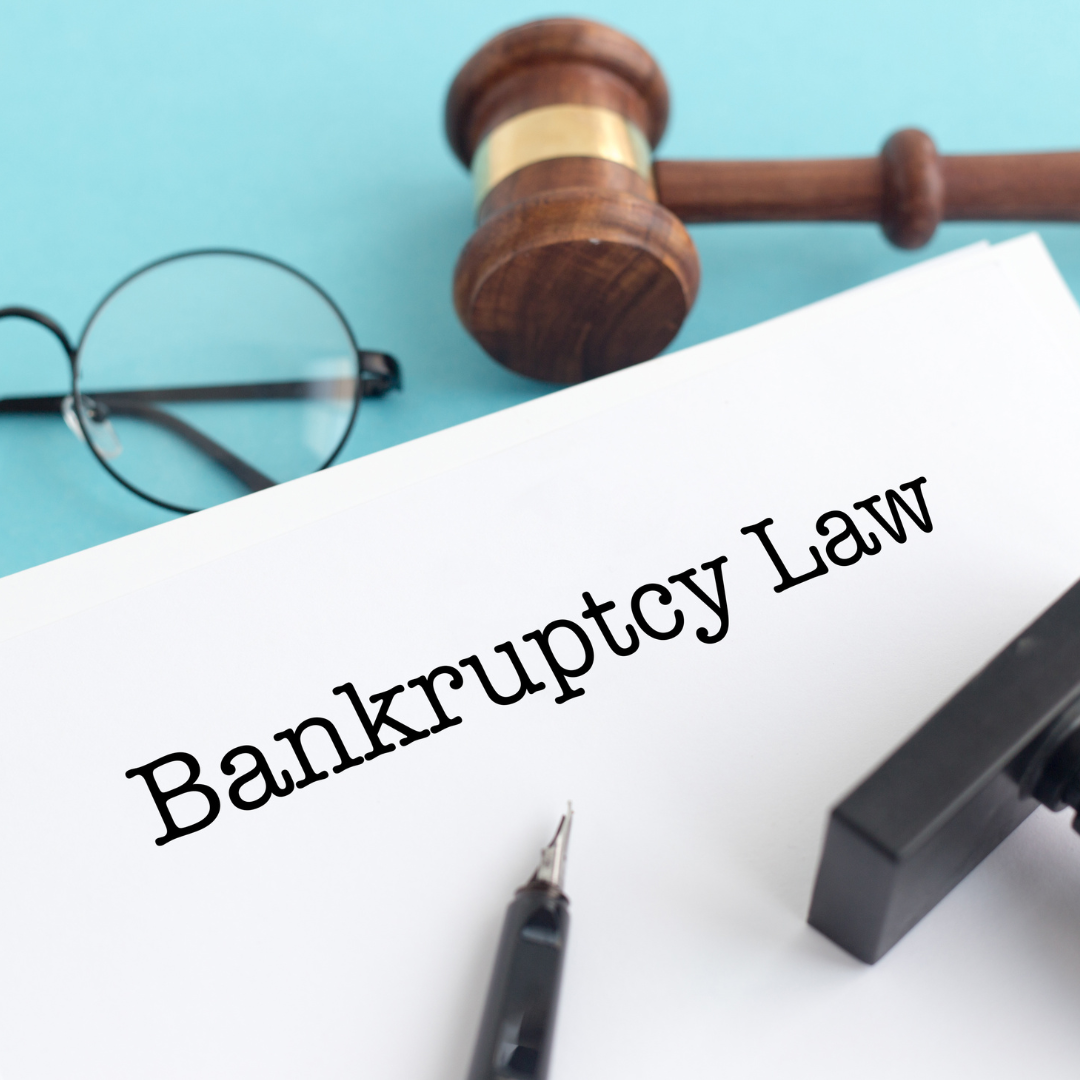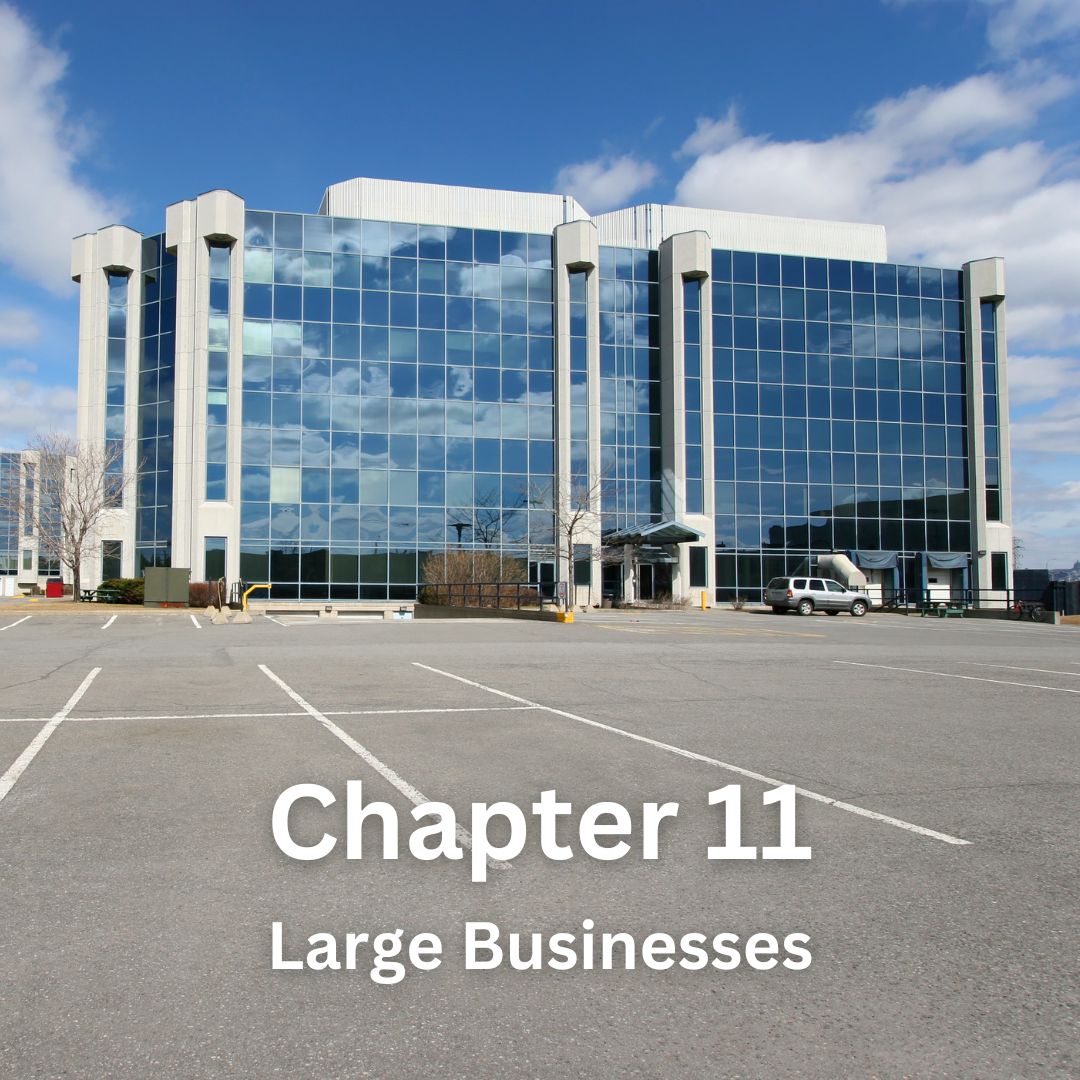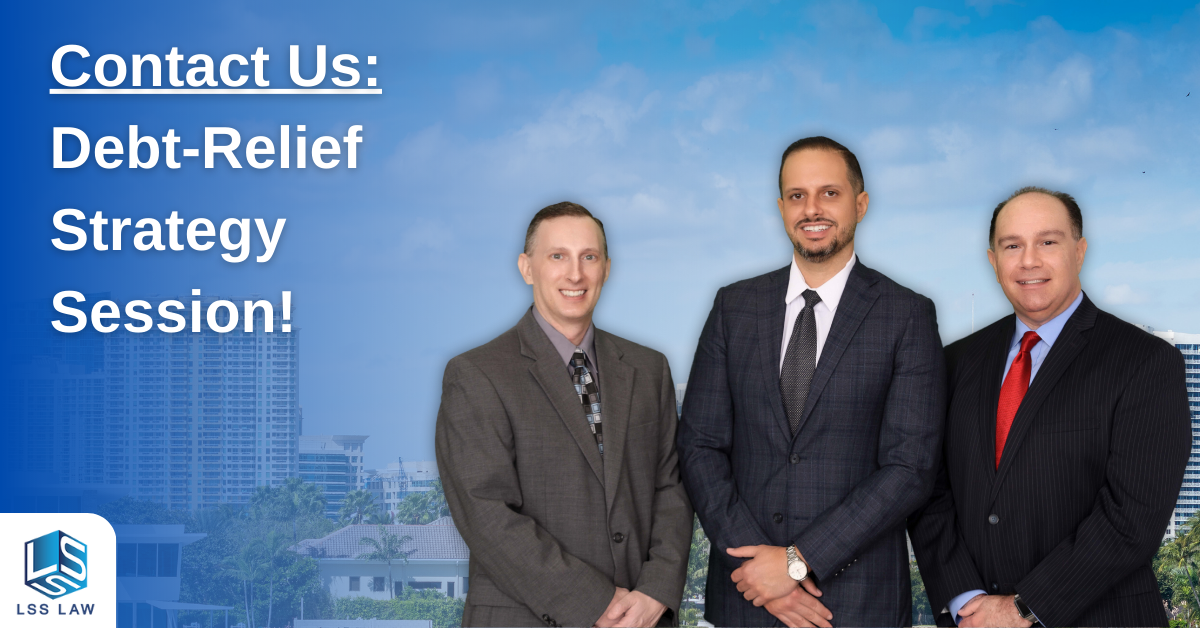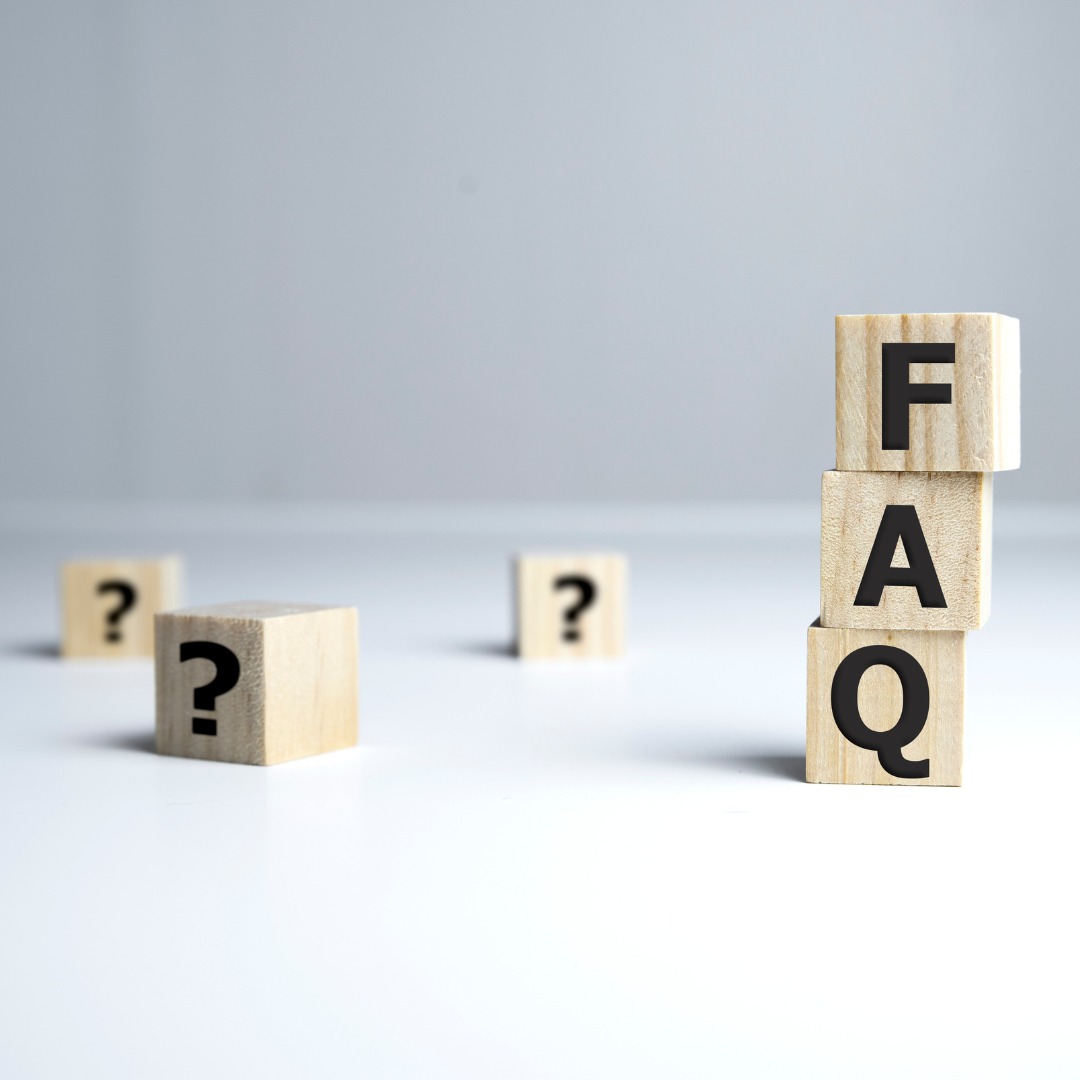If you’re dealing with financial difficulties, bankruptcy may be a helpful solution. Bankruptcy can allow you to eliminate or reorganize your debts and get your finances back on track. LSS Law is a bankruptcy law firm located in South Florida that can assist you in filing for bankruptcy effectively. In this blog, we will focus on Chapter 11 bankruptcy, a type of bankruptcy that is beneficial for businesses and individuals struggling financially.
What is Bankruptcy and Why is it Necessary?
Bankruptcy is a legal process designed to help individuals and businesses with significant debt obligations. Filing for bankruptcy can enable you to discharge certain debts, restructure others, or both. Bankruptcy can help individuals and businesses find financial stability and get a fresh start.
LSS Law: A Fort Lauderdale Bankruptcy Law Firm
LSS Law is a bankruptcy law firm located in South Florida. Our firm helps clients file for bankruptcy effectively and efficiently, and we specialize in Chapter 11 bankruptcy.
What is Chapter 11 Bankruptcy?
Chapter 11 bankruptcy is a type of bankruptcy designed to help businesses and individuals reorganize their debts and pay off their creditors over time. Chapter 11 enables a business or individual to continue operations while developing a plan to pay off debts. This can be helpful for businesses with valuable assets and a viable business plan but are experiencing financial struggles.
Understanding Chapter 11 Bankruptcy

It is important to understand Chapter 11 bankruptcy if you are considering bankruptcy as an option. Many people have questions about Chapter 11, such as what it is, how it works, and what it means for individuals and businesses. At LSS Law, we believe that it is important for our clients to have a clear understanding of the bankruptcy process so that they can make informed decisions about their financial future.
Chapter 11 for Small Businesses

Chapter 11 bankruptcy can be a helpful solution for small businesses that are facing financial difficulties. Small businesses may struggle with debts due to unexpected expenses, economic downturns, or other factors. Through Chapter 11 bankruptcy, the small business debtor can obtain protection from creditors while reorganizing their finances. The debtor must present a reorganization plan to the court that outlines how they intend to pay their creditors over time. This plan must include details such as payment amounts and repayment periods.
Small businesses can benefit from Chapter 11 bankruptcy in several ways. First, Chapter 11 bankruptcy enables small businesses to retain their assets and continue operations. This can be helpful for both small business owners or businesses that have valuable assets, such as property or equipment, that are necessary for their operations. Second, Chapter 11 bankruptcy allows small businesses to develop a repayment plan that suits their needs and abilities. This can help small businesses avoid the negative consequences of defaulting on their debts, such as foreclosure or repossession. Finally, Chapter 11 bankruptcy provides small businesses with an opportunity to reorganize their finances and get a fresh start.
Chapter 11 for Large Businesses

Chapter 11 bankruptcy is particularly well-suited for large businesses that are struggling financially. This can help large businesses avoid liquidation and bankruptcy, which can be a significant advantage for the business and its employees.
Benefits of Chapter 11 for Large Businesses
Some benefits of Chapter 11 bankruptcy for large businesses include:
- The ability to reorganize debt and reduce the company’s financial burden
- The opportunity to renegotiate contracts and leases with vendors and landlords
- The ability to continue business operations and maintain relationships with customers and suppliers
- The ability to shed unprofitable business units or operations
- The potential to emerge from bankruptcy as a stronger and more competitive business
Chapter 11 for Individuals
Chapter 11 bankruptcy is not just for businesses. Individuals with significant assets and income may also benefit from Chapter 11 bankruptcy. Chapter 11 bankruptcy can be a helpful solution for individuals who are struggling with debts, but still have valuable assets, such as property or investments, that they wish to retain.
Chapter 11 bankruptcy for individuals is similar to Chapter 11 bankruptcy for businesses. Individuals can continue operating their businesses while developing a repayment plan to pay off their debts over time. Chapter 11 bankruptcy can enable individuals to avoid foreclosure or repossession of assets, and it can provide an opportunity to reorganize finances and get a fresh start.
However, Chapter 11 bankruptcy can be more complex and expensive than other types of bankruptcy, and it may not be the best option for every individual. It’s important to work with an experienced bankruptcy attorney to determine if Chapter 11 bankruptcy is the right choice for your specific situation.
Small Business Reorganization Act
The Small Business Reorganization Act (SBRA) is an amendment to the bankruptcy code that makes it easier for a small business filing bankruptcy to reorganize its debts through Chapter 11.
Eligibility for the SBRA
The SBRA is specifically designed for small businesses. To be eligible for the SBRA, a business must have debts of no more than $7.5 million. Additionally, at least 50% of the business’s debts must have arisen from commercial or business activities.
Benefits of the SBRA
The SBRA offers several benefits to small businesses, including:
- A simplified reorganization process that is less expensive and time-consuming than traditional Chapter 11 bankruptcy.
- The appointment of a trustee to oversee the reorganization process and help the debtor develop a reorganization plan.
- The ability to modify certain types of debts, such as leases and loans, to make them more manageable.
- The ability to keep ownership of the business while reorganizing debts.
Chapter 11: Subchapter 5
Chapter 11: Subchapter 5 is a section of the United States Bankruptcy Code that outlines the rules and procedures for small business bankruptcies. It was added to the Bankruptcy Code in 2019 as part of the Small Business Reorganization Act (SBRA) to provide relief to small businesses facing financial distress.
Under Subchapter 5, small businesses with less than $7.5 million in debt can file for bankruptcy under a simplified and expedited process. This process is designed to be less expensive and time-consuming than traditional bankruptcy proceedings, allowing small businesses to restructure and recover more quickly.
The Subchapter 5 process typically takes only a few months to complete and does not require the appointment of a creditors’ committee, reducing costs for the debtor. In addition, the debtor retains control of the business operations during the bankruptcy process, unlike traditional bankruptcies where a trustee is appointed to oversee the debtor’s operations. This can help to ensure that the business remains viable and operational during bankruptcy proceedings. Ultimately, the goal of Subchapter 5 is to help small businesses restructure and emerge from bankruptcy stronger and more financially stable.
Meeting with Creditors
One important step in a Chapter 11 bankruptcy case is the meeting with creditors, also known as the 341 meeting. This meeting is typically held within the first few weeks after filing for bankruptcy and involves only the debtor, their attorney, and the trustee assigned to their case. During this meeting, all parties are allowed to ask questions regarding the background of the bankruptcy case and any other related matters. It is important that all information provided during this meeting is accurate and truthful as it will be used to determine how debts should be settled or discharged in a Chapter 11 bankruptcy.
Purpose of the Meeting with Creditors
The purpose of the meeting with creditors is to allow the trustee and creditors to ask the debtor questions about their finances and the proposed reorganization plan. The meeting provides an opportunity for the trustee and creditors to review the debtor’s financial situation and ensure that they have a viable plan for repaying their debts.
What to Expect at the Meeting with Creditors
During the meeting with creditors, the trustee will ask the debtor a series of questions about their finances, such as their income, expenses, assets, and liabilities. Creditors may also attend the meeting and ask questions. The meeting typically lasts about 30 minutes and is conducted under oath.
Preparation for the Meeting with Creditors
Before the meeting with creditors, the debtor should work with their attorney to prepare for the meeting. They should review their proposed reorganization plan and disclosure statement, and be prepared to answer questions about their finances. In addition, it is important to read over any documents that will be discussed at the meeting so that you can provide an accurate response when asked about them. It’s important to be honest and forthcoming during the meeting to ensure that the trustee and creditors have accurate information about the debtor’s financial situation.
The Automatic Stay
One of the most significant benefits of filing for bankruptcy, including Chapter 11 bankruptcy, is the automatic stay. The automatic stay is a legal injunction that stops most collection actions against the debtor as soon as the bankruptcy petition is filed in bankruptcy courts. The automatic stay prohibits creditors from pursuing any collection activities against the debtor, such as:
- Foreclosure
- Repossession
- Wage garnishment
- Harassing phone calls and letters from creditors
The automatic stay gives the debtor time to reorganize their finances and develop a plan to pay off their debts. It also provides a sense of relief from the stress and anxiety of dealing with overwhelming debt.
Exceptions to the Automatic Stay
While the automatic stay is generally effective immediately upon filing for bankruptcy, there are some exceptions. The automatic stay does not apply to all debts and all types of collection actions. For example, the automatic stay does not apply to:
- Criminal proceedings
- Tax audits or assessments
- Domestic support obligations
- Some types of eviction proceedings
It’s important to work with an experienced bankruptcy attorney to understand the scope of the automatic stay and how it applies to your specific situation.
Common Reasons for Chapter 11 Bankruptcy
There are several common reasons why businesses and individuals file for Chapter 11 bankruptcy, including:
- Excessive debt: Businesses and individuals may accrue debts beyond their ability to pay back. Chapter 11 bankruptcy provides a mechanism for restructuring debt obligations and creating a payment plan that is more manageable.
- Business downturns: Economic downturns or changes in the marketplace can lead to a decline in a business’s revenue and profitability. Chapter 11 bankruptcy can help the business restructure its operations and expenses to become more profitable.
- Legal judgments or settlements: Businesses and individuals may face large legal judgments or settlements that they cannot afford to pay. Chapter 11 bankruptcy can help these parties negotiate a payment plan to repay the debt over time.
- Natural disasters: Natural disasters can cause significant damage to a business or individual’s property and disrupt operations. Chapter 11 bankruptcy can help these parties reorganize and continue operations after a disaster.
Benefits of Chapter 11 Bankruptcy
There are several benefits to filing for Chapter 11 bankruptcy, including:
- Protection from creditors: When a debtor files for Chapter 11 bankruptcy, they receive an automatic stay that prevents creditors from taking legal action to collect debts. This provides the debtor with time to reorganize their finances and operations without the threat of legal action from creditors.
- Retention of assets: In Chapter 11 bankruptcy, the debtor can retain control of their assets and continue to operate their business while developing a reorganization plan. This enables the debtor to continue generating revenue and building value while they restructure their finances.
- Opportunity for debt reduction: Chapter 11 bankruptcy provides a mechanism for debt reduction or elimination, enabling the debtor to emerge from bankruptcy with a more manageable debt load.
- Increased transparency: Chapter 11 bankruptcy requires the debtor to provide detailed financial information to the court and creditors, increasing transparency and accountability.
Types of Creditors
Secured Creditors
Secured creditors are lenders who hold a security interest in a debtor’s property. The security interest serves as collateral for the loan. In Chapter 11 bankruptcy, secured creditors are entitled to receive payments before unsecured creditors. The debtor may be required to provide a reorganization plan that includes provisions for repaying secured creditors over time. If the debtor defaults on their payments to secured creditors, the secured creditor may have the right to repossess the collateral.
Unsecured Creditors
Unsecured creditors are lenders who do not have a security interest in a debtor’s property. These creditors typically lend money without requiring any collateral, the most common form of unsecured debt being credit cards and personal loans. They are not entitled to receive payments before secured creditors or other unsecured creditors. In Chapter 11 bankruptcy, unsecured creditors may receive payments from the debtor according to a priority system. Priority creditors, such as employees owed wages or taxes, are entitled to receive payments before general unsecured creditors. The amount and timing of payments to unsecured creditors are determined by the debtor’s reorganization plan, which may include partial payment of debt or even complete repayment for some creditors. If the debtor is unable to make payments to unsecured creditors, they may file a claim with the bankruptcy court or seek repayment from other unsecured creditors with higher priority in order to try to recover some of the debt owed to them.
Chapter 11 vs Chapter 7 Bankruptcy
A Chapter 11 bankruptcy filing is different from a Chapter 7 bankruptcy, which is a type of bankruptcy that is designed to eliminate debts. Chapter 7 bankruptcy is often referred to as “liquidation” bankruptcy because it involves the sale of a debtor’s assets to pay off their creditors. In contrast, Chapter 11 bankruptcy is a “reorganization” bankruptcy that allows debtors to keep their assets and continue operating their businesses while they pay off their debts.
What Does Chapter 11 Bankruptcy Mean for Individuals?
Chapter 11 bankruptcy is not just for businesses. Individuals can also file for Chapter 11 bankruptcy if they have significant assets and income. In these cases, individuals must follow the same rules and regulations that govern businesses under the U.S. Bankruptcy Code. However, Chapter 11 bankruptcy can be more complex and expensive than Chapter 7 bankruptcy, so it is important to work with an experienced bankruptcy attorney who can help you decide which option is best for you.
Is Chapter 11 Bankruptcy a Good Thing?
Many people view bankruptcy as a negative thing, but Chapter 11 bankruptcy can be a good thing for businesses and individuals who are struggling financially. Chapter 11 bankruptcy allows debtors to restructure their debts and pay off their creditors over time, which can help them avoid foreclosure, repossession, and other negative consequences of defaulting on their debts. It can also help them get a fresh start and rebuild their finances.
The Importance of Understanding Chapter 11 Bankruptcy
It’s essential to understand Chapter 11 bankruptcy if you’re considering filing for bankruptcy. Many people have questions about Chapter 11, such as what it involves, how it works, and how it affects businesses and individuals.
What Happens During a Chapter 11 Bankruptcy Case?
During the ordinary course of a Chapter 11 bankruptcy case, the debtor continues to operate their business while developing a plan to pay off their creditors over time. The debtor proposes a reorganization plan that outlines how they plan to repay their debts. The plan is then submitted to creditors and the court for approval. If approved, the debtor makes payments according to the plan and the case concludes when all payments are made.
Comparison of Chapter 11 and Chapter 7 Bankruptcy
Chapter 11 bankruptcy is different from Chapter 7 bankruptcy. Chapter 7 bankruptcy is designed for business debtors to eliminate debts, and it’s commonly known as “liquidation” bankruptcy. In contrast, Chapter 11 bankruptcy is a “reorganization” bankruptcy that enables debtors to retain assets and continue operating their businesses while paying off debts.
Does Chapter 11 Bankruptcy Wipe Out Debt?
Chapter 11 bankruptcy doesn’t wipe out all debts. Instead, the debtor develops a plan to repay their creditors over time. Some debts may be discharged, but most debts will be restructured so that they can be repaid over time.
What Chapter 11 Bankruptcy Means for Individuals
Chapter 11 bankruptcy can be a good option for individuals with significant assets and income who are struggling financially. Chapter 11 bankruptcy allows individuals to keep their personal assets, and continue operating their businesses while developing a plan to pay off their creditors over time.
Is Chapter 11 Bankruptcy a Good Thing?
While bankruptcy is often seen as a negative thing, Chapter 11 bankruptcy can be a good thing for businesses and individuals who are struggling financially. Chapter 11 bankruptcy can help debtors avoid foreclosure, repossession, and other negative consequences of defaulting on their debts. It can also provide an opportunity for debtors to restructure their finances and get a fresh start.
Our Final Take
Chapter 11 bankruptcy can be a helpful solution for businesses and individuals who are struggling financially. It allows debtors to restructure their debts and pay off their creditors over time, while still maintaining their assets and continuing their business operations. At LSS Law, we specialize in Chapter 11 bankruptcy and can assist you in filing for bankruptcy effectively. If you’re considering bankruptcy, schedule a bankruptcy strategy session with us today.
Take Action: Schedule a Bankruptcy Strategy Session with LSS Law

If you’re struggling with debt, it’s essential to work with an experienced bankruptcy attorney who can help you understand your options and make informed decisions about your financial future. At LSS Law, our experienced bankruptcy attorneys can provide you with the guidance and support you need to navigate the Chapter 11 bankruptcy process effectively.
To get started, schedule a bankruptcy strategy session with one of our attorneys. During the session, we’ll review your financial situation, discuss your options, and help you develop a plan to achieve financial stability.
To schedule your bankruptcy strategy session with LSS Law, contact us via email at info@lss.law or call us at 954-466-0541. You can also schedule your session online by visiting our website and filling out our contact form at https://lss.law/contact-us/. We’re here to help you find a path toward financial stability and success.
Defining Chapter 11 of Bankruptcy in Fort Lauderdale | Your Questions Answered

Can a Company Survive Chapter 11?
Chapter 11 bankruptcy can provide struggling companies with an opportunity to reorganize their finances and operations, and ultimately survive. Through a successful Chapter 11 bankruptcy, a company can reduce its debt obligations, renegotiate contracts, and shed unprofitable assets or divisions. Additionally, a company can improve its cash flow and profitability through increased operational efficiencies and cost reductions. The goal of restructuring is to pay creditors in full or as much as possible while still allowing the company to remain afloat. However, the success of a Chapter 11 bankruptcy depends on a variety of factors, including the company’s financial situation, market conditions, and the effectiveness of its restructuring plan.
What Happens with Chapter 11 Bankruptcy?
During a Chapter 11 bankruptcy, the debtor continues to operate their business while developing a plan to pay off their creditors over time. The debtor proposes a reorganization plan that outlines how they plan to repay their debts. The plan is then submitted to creditors and the court for approval. If approved, the debtor makes payments according to the plan and the case concludes when all payments are made. The court will appoint a trustee to oversee the bankruptcy process and ensure that the debtor is meeting its obligations under the plan. Additionally, the debtor will be subject to certain reporting and accounting requirements to provide transparency to creditors and the court.
How Long Can a Company Stay in Chapter 11?
There is no set time limit for how long a company can remain in Chapter 11 bankruptcy. The length of time a company stays in Chapter 11 can vary depending on the complexity of its financial situation, its restructuring plan’s effectiveness, and its creditors’ cooperation. Generally, a company can stay in Chapter 11 for several months to several years. However, the longer a company remains in Chapter 11, the more expensive the process becomes due to legal and administrative costs. As a result, it’s in the best interest of the company and its stakeholders to complete the Chapter 11 process as quickly and efficiently as possible.
What Happens in a Chapter 11 Bankruptcy?
Chapter 11 bankruptcy is a complex legal process that allows businesses and individuals to restructure their debts and operations while continuing to operate their business or personal affairs. In Chapter 11 bankruptcy, a debtor must propose a plan for reorganizing their debts, which the court must approve. If approved, the debtor will make payments to creditors over a period of time, typically several years. During this time, the debtor must report their financial activities to the court and comply with certain other requirements. The length of time a debtor remains in Chapter 11 bankruptcy can vary widely depending on the complexity of the case, but it can last several months to several years.
What is the Difference Between Chapter 7 and 11 Bankruptcy?
Chapter 7 bankruptcy is a type of bankruptcy that involves the liquidation of a debtor’s assets to pay off creditors. In contrast, Chapter 11 bankruptcy is a reorganization process that allows debtors to continue operating their business or personal affairs while developing a plan to repay creditors over time. In Chapter 11 bankruptcy, the debtor typically proposes a plan for reorganizing their finances and repaying creditors, which the court must approve. The debtor will make payments to creditors over a period of time, which can last several years. Chapter 11 bankruptcy is often used by businesses that wish to continue operating but need relief from their debt obligations.
Does Chapter 11 Wipe Out Debt?
Chapter 11 bankruptcy is not designed to wipe out all debt, but it can reduce or eliminate some debts. In order to qualify for Chapter 11 bankruptcy, certain conditions must be met and certain procedures followed. Bankruptcy laws vary from state to state, so it’s important to consult an attorney who is well-versed in the local laws before filing for bankruptcy. In Chapter 11 bankruptcy, a debtor proposes a plan for repaying creditors over time, which the court must approve. The debtor will make payments to creditors over a period of time, typically several years. Depending on the specifics of the case, some debts may be reduced or eliminated entirely, while others may be restructured to make them more manageable. It’s important to note that Chapter 11 bankruptcy is not a guaranteed path to debt relief, and it can be a costly and time-consuming process. However, for businesses and individuals who are struggling with debt, Chapter 11 bankruptcy can provide a viable path toward financial stability.
What is Chapter 11 Bankruptcy for Individuals?
Chapter 11 bankruptcy for individuals is a reorganization process that is typically used when the individual doesn’t qualify for Chapter 13 bankruptcy. In Chapter 11 bankruptcy, the debtor proposes a plan for repaying their debts over time, which the court must approve. The debtor will make payments to creditors over a period of time, typically several years, while retaining control of their assets and continuing their personal affairs. The filing fee for Chapter 11 bankruptcy can range from $1,500-$2,000 depending on the complexity of the case and other factors. Chapter 11 bankruptcy for individuals is a complex and costly process, but it can provide a path toward financial stability for those who are struggling with debt.
What Does Chapter 11 Bankruptcy Mean?
Chapter 11 bankruptcy is a legal process that allows businesses and individuals to restructure their debts and operations while continuing to operate their business or personal affairs. The goal of Chapter 11 bankruptcy is to provide debtors with relief from their debts while allowing them to retain control of their assets and continue operating their business or personal affairs. Debtors in Chapter 11 bankruptcy typically propose a plan for reorganizing their finances and repaying creditors over time, which must be approved by the court. The debtor will make payments to creditors over a period of time, typically several years, while complying with certain legal and reporting requirements.
Is Chapter 11 Bankruptcy a Good Thing?
Chapter 11 bankruptcy can be a good thing for businesses and individuals who are struggling with debt. It provides debtors with an opportunity to restructure their finances and operations, reduce or eliminate debt, and continue operating their business or personal affairs. However, Chapter 11 bankruptcy is a complex and costly process that can take several months to several years to complete. Debtors must work closely with an experienced bankruptcy attorney to develop a viable plan for reorganizing their finances and repaying their creditors. Ultimately, the decision to file for Chapter 11 bankruptcy will depend on the debtor’s specific financial situation, but for those who are struggling with debt and seeking relief, Chapter 11 bankruptcy can provide a path toward financial stability.






